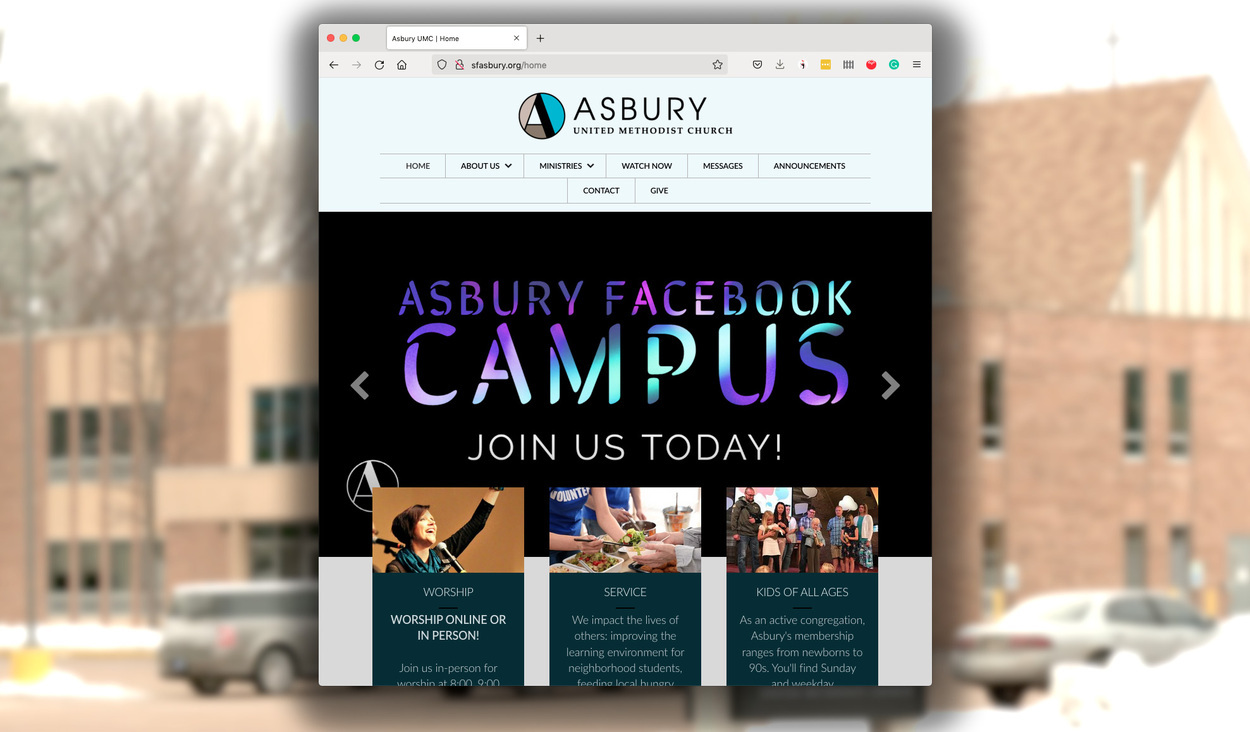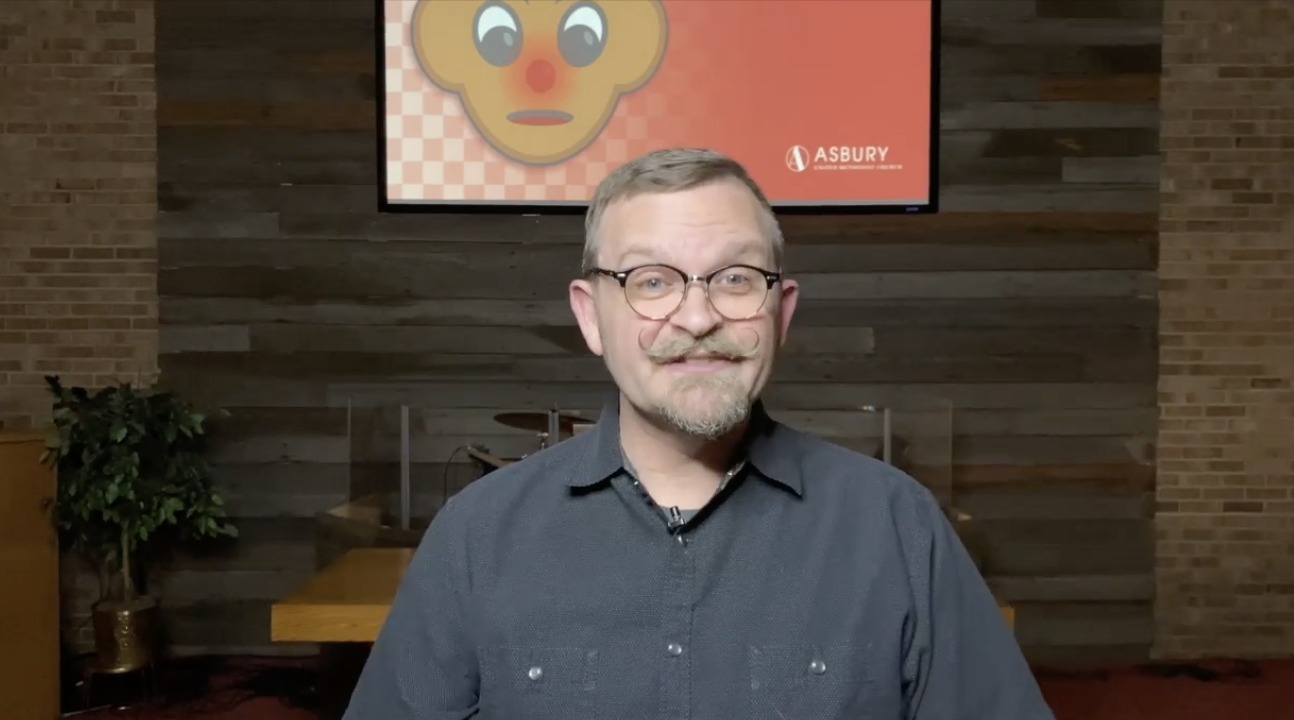
Asbury UMC’s online campus: Engagement, relationship, Christ

“It is important to recognize that we are in a different time. Our mission and values have not changed, but there are different access and entry points for people when it comes to church and worship,” said Rev. Matt Morrison of Asbury UMC in Sioux Falls, South Dakota.
Asbury United Methodist Church in Sioux Falls, South Dakota, has an online campus that started with the pandemic but has emerged into a ministry connecting with people who are members of Asbury UMC and others who are new to the church.
“We have one lady who worships with us online who is 97 years old. She worships online, and so does her son, who lives in Denver,” said Morrison. “Sometime during the week, the two (mother and son) have conversations about the message and worship experience.”
Creating an online church community takes intention and focus. The Asbury online campus uses a Facebook group and includes worship, online chats, and posts that encourage engagement throughout the week.
Each week, Morrison and the digital ministry team at Asbury spend time planning and recording two different types of online worship services– a traditional service and a nontraditional service. The traditional service includes music and liturgy that you would find in the United Methodist Hymnal. The nontraditional service includes music composed by artists in the past five to seven years and a liturgy that has a casual tone.
The 30-35 minute recorded traditional service happens on Facebook on Sunday mornings at 8 a.m. and 9 a.m. Volunteers or staff are available to greet, pray, and respond to comments. The nontraditional service is live on Facebook at 10:45 a.m. each Sunday. All of the worship services can be viewed throughout the week on Facebook.
The online worship services are not the same as the in-person worship experiences at Asbury UMC. Online worship leaders are in front of a camera and looking into the camera. The online worship experience is shorter and includes less responsive liturgy and music. A typical online worship experience consists of a countdown, welcome, song, children’s message, announcements, and benediction.

Rev. Matt Morrison delivers the message during an online worship service for the Asbury online campus.
“We are seeing a new way to be in communal life. We know that the digital experience needs to be different than the in-person experience,” said Morrison. “There is a synergy in everything that is happening.”
The digital ministry team at Asbury includes three groups. First, some people work with specific technology systems like cameras, sound, and editing. There are communication people creating content and the visual pieces that go with the content. Finally, some people work on the engagement side by serving as chat hosts during worship or responding to people on Facebook throughout the week.
Staff members host video chats throughout the week that include devotionals, follow-up conversations to the message from worship, and announcements that invite those in the group to in-person events or next steps in discipleship.
“Discipleship looks different for each person. We are constantly looking at ways to engage people and invite them to their next step in faith. We are trying to be creative in how we invite people into relationships,” said Pastor Matt.
The digital campus is creating and stirring up possibilities for new ministry. “You don’t have to think about geography anymore,” said Morrison. Asbury is seeing new ways to serve people who are snowbirds or are homebound and invite people to Christ, especially those who have never heard the good news.
Morrison points to the work of Phyllis Tickle, who writes that massive transitions in the church happen about every 500 years. Morrison states that it has been 500 years since the last reformation.
“It is kind of like we are in this huge rummage sale, and everything is up for grabs,” said Morrison. “We are still spreading the Gospel, but there are new expressions, and we are refining the delivery method and creating new opportunities.”
The post-pandemic church is creating new energy for ministry. “I find myself thinking about all the creative possibilities, and my head starts to spin,” said Pastor Matt. “We can customize things. It is an opportunity to have fun– to connect in new ways.”
Asbury is seeing growth in two ways, numbers of people worshipping, but even more critical is growth in engagement. “In the online campus, we are intentional and always trying to build relationships. We are always seeking and creating ways to engage people. It is challenging and inspiring,” said Morrison.
Learn more about the digital campus initiative here.